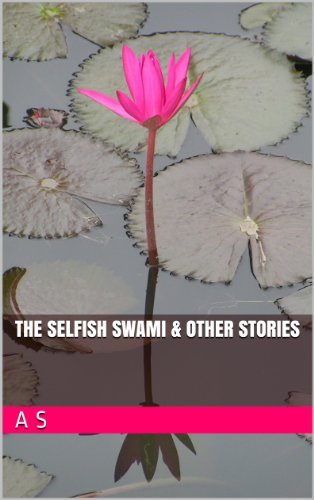Shiva used to be a wild god who preferred roaming the woods and mountains, and living in cemeteries. He was a bachelor and he did as he pleased with no regard for form or factor. At times, he would go into a deep meditation for years on end, and other times he would go into a high trance smoking ganja with his wild followers. He smeared his body with the ash from the cemetry and danced naked.
The gods were concerned about Shiva's wild ways. They were also concerned, that he being such a great god, set a bad example to the rest of the world. They thought that he needed to be tamed and the best way to do that would be to get him married. Now, who better to tame Shiva than the great Mother Goddess? They approached and pleaded with her, and she agreed to their request.
The Mother Goddess was born as Uma, the daughter of Daksha, who was the chief Prajapati. As Uma, she managed to impress and win over Shiva. However, Daksha did not approve of her choice of a husband and was quite opposed to the alliance. Uma went against her father's preference and married Shiva. As it turned out, it was a highly successful relationship. Shiva and Uma formed a great pair together, living happily, enjoying the mutual pleasures, support and contentment of marital life.
One day, Uma heard that her father was organizing a great yajna, a sacrifice, to which he had invited all the important people in the Universe. However, he had not invited Uma and Shiva, his daughter and son-in-law. Uma was very disturbed to hear that, where as Shiva, the great Yogi and renunciate, was merely amused. Uma felt that perhaps, her father had forgotten to invite them. she thought that as a daughter, she had the right to attend the yajna without being invited. shiva advised her against that, but she insisted until Shiva relented and sent her off by herself.
At the yajna, Uma discovered that her father did not welcome her with warmth. Moreover, he did not plan on making any offering in the yajna to Shiva, the greatest god of all, where as he offered much to all the other gods. This angered Uma and she questioned her father. Daksha's responses were very disrespectful and insulting to Shiva. This hurt Uma deeply. Not being able to bear the humiliation of her husband in front of the entire Universe, Uma killed herself by an act of spontaneous combustion.
On hearing the news of Uma's death, Shiva was infinitely angered. He pulled out a handful of his dreadlocks, and used them to created two fierce and fearsome beings called Veerabhadra and Bhadrakaali. Those two, along with hordes of Shiva's wild followers, attacked Daksha's house, beating away all the gods. Veerabhadra cut off Daksha's head and offered it in the fire of the yajna. Later on, Shiva restored Daksha to life by joining his body to a goat's head.
What happened next is very touching. Shiva's infinite anger was followed by infinite pain and he goes insane. He roams the world carrying Uma's corpse, hugging her to his body as his Sati, the forever companion. When Shiva's frenzy increases to the point of destroying the cosmic balance, Vishnu destroys Sati's body with his Sudarshana chakra.
And then, Shiva slips into infinite grief. He is not able to do anything, not even move. He slips into a deep meditative trance, called the yoga nidra. Shiva's yoga nidra lasts for centuries, while the Universe changes all around him. Forces of evil grow powerful and gain control of the world. Everybody suffers. It appears that Shiva's grief-stricken samadhi will last forever.
I don't understand why Uma had to kill herself. She was angry. She was humiliated. But was it really necessary to kill herself? To destroy the happy marriage she had with Shiva? To cause him to lose his beloved Sati? To go away and give him infinite pain and grief? Shiva would have gladly accepted her and kept her happy forever, if she left her father's house and gone back to him. What was the need to break up their sweet married life? I don't understand.
But I understand Shiva. I understand overwhelming grief and pain. I understand not being able to do anything, not being able to eat or drink, not being able to accomplish the day's tasks. I understand not wanting to see anybody or say anything. I understand how all the will and desire to live can flow out. I understand how there can be no purpose or meaning to anything more in life. All he was left with was to slip into a yoga nidra that seemed to last forever. I wish I could too.









1. Nobody wants to be let down by one's own birth family - the ultimate place for unconditional love.
ReplyDelete2. Nobody wants to be torn between one's spouse and parents.
3. Had Sati gone back and lived normally with Shiva, others might have felt free to ridicule Shiva also.
Those are the reasons I can think of as to why Sati immolated herself. The first two stem from anguish, and the last implies a form of protest.
Priya.
P.S: Be patient and good things will come to you.
Priya,
ReplyDeleteI did think of all those reasons for Sati to kill herself. But compared to the consequences of her death (viz., the death of her happy married life, the lifelessness of her loving husband), all the above reasons seem trivial. They don't seem big enough for her to kill herself.
LL